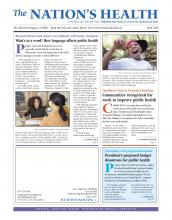More than 37,400 people were killed in motor vehicle crashes in 2016, and early 2017 data suggest that the number continues to rise. A new report offers tools to help states implement their laws and reduce traffic deaths and injuries.
On Jan. 22, Advocates for Highway and Auto Safety released its 2018 Roadmap of State Highway Safety Laws, an annual measure of state progress on adopting 16 traffic safety laws. The laws aim to save lives and reduce crash-related costs addressing child passenger safety, teen driving, distracted driving, occupant protection and impaired driving. The report also highlighted the best- and worst-performing states by ranking all 50 states and the District of Columbia on the adoption of such laws.
Rhode Island earned the top rating, with 13 out of 16 safety laws adopted. The state adopted all of the optimal laws for child passenger safety, impaired driving and distracted driving.
According to the roadmap, 37,461 people were killed in motor vehicle crashes in 2016. The report shows that fatalities increased 5.6 percent from 2015 to 2016 on top of an 8.4 percent increase from 2014 to 2015.
“Approximately 100 people are killed and 6,500 more are injured in crashes every day, on average,” said Cathy Chase, president of Advocates for Highway and Auto Safety, in a news release. “Further, this comes with a significant economic burden on society. Each person in America pays an annual ‘crash tax’ of $784. When loss of life, pain and decreased quality of life are factored in, society shoulders $836 billion a year. This significant emotional and economic toll must be addressed with urgency and immediacy.”
No states have adopted all 16 laws recommended in the roadmap, but there were improvements in 2017. Thirteen laws were passed by states last year that met the report’s criteria. Individual states also took steps toward improved motor vehicle and highway safety. California upgraded to the roadmap’s highest ranking category after implementing a law requiring children under 2 to be secured in rear-facing booster seats, becoming one of just nine states to have such a law. Mississippi, Nevada, North Dakota and Pennsylvania moved from the lowest to the middle ranking.
The report stated that public support and advocacy for increasing state and federal laws are important in highway and auto safety. Georges Benjamin, MD, executive director of APHA, called for government officials to put on their public health hats when working toward the goal of making all roadways safer.
“As with every other public health challenge, we must look to solutions that are shown to be effective in saving lives and preventing injuries,” Benjamin said at a Washington, D.C., news conference announcing the report on Jan. 22.
To find more information about the 2018 roadmap report, visit www.saferoads.org.
To learn more about transportation and health, visit www.apha.org/topics-and-issues/transportation.
- Copyright The Nation’s Health, American Public Health Association









